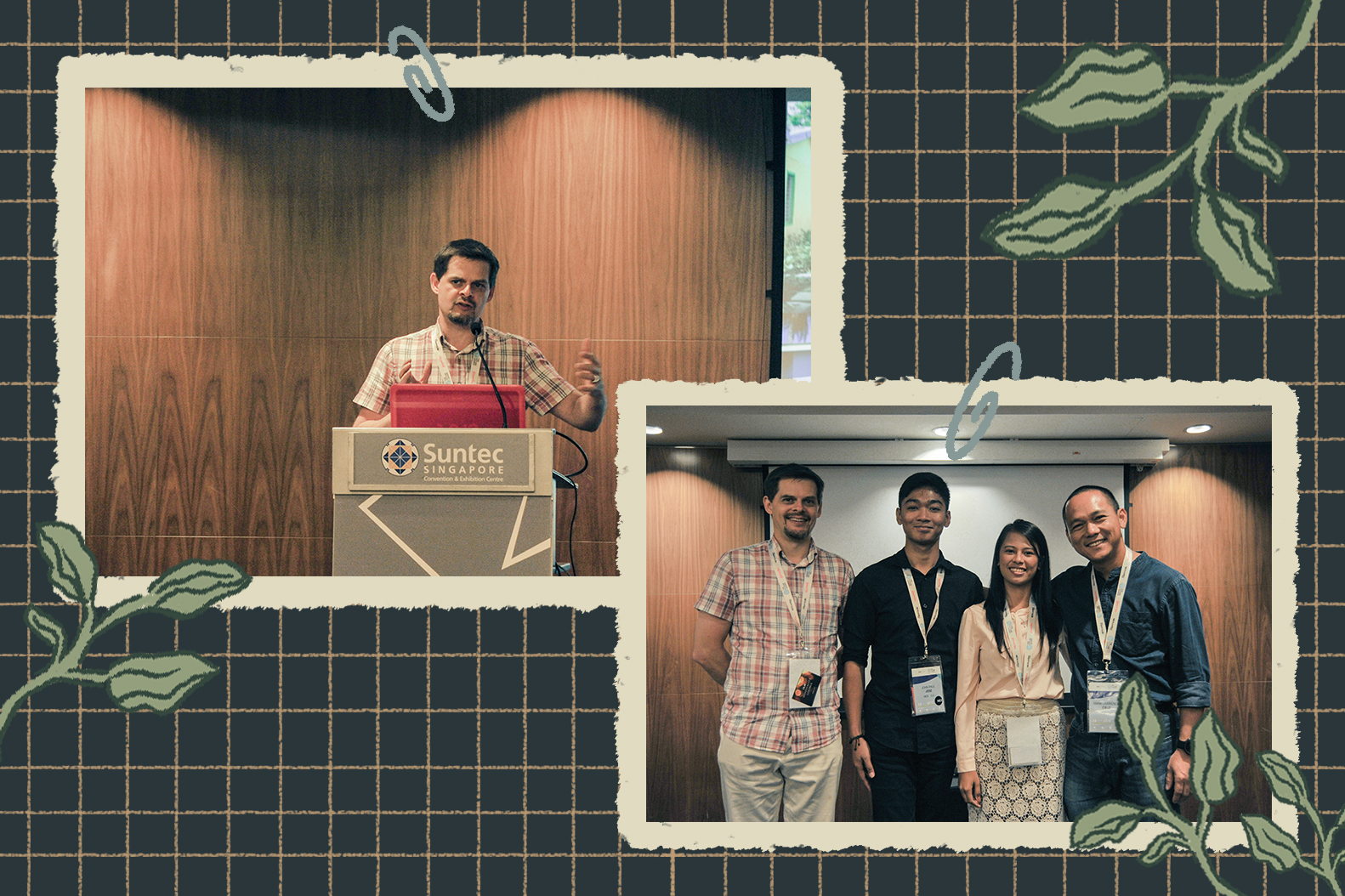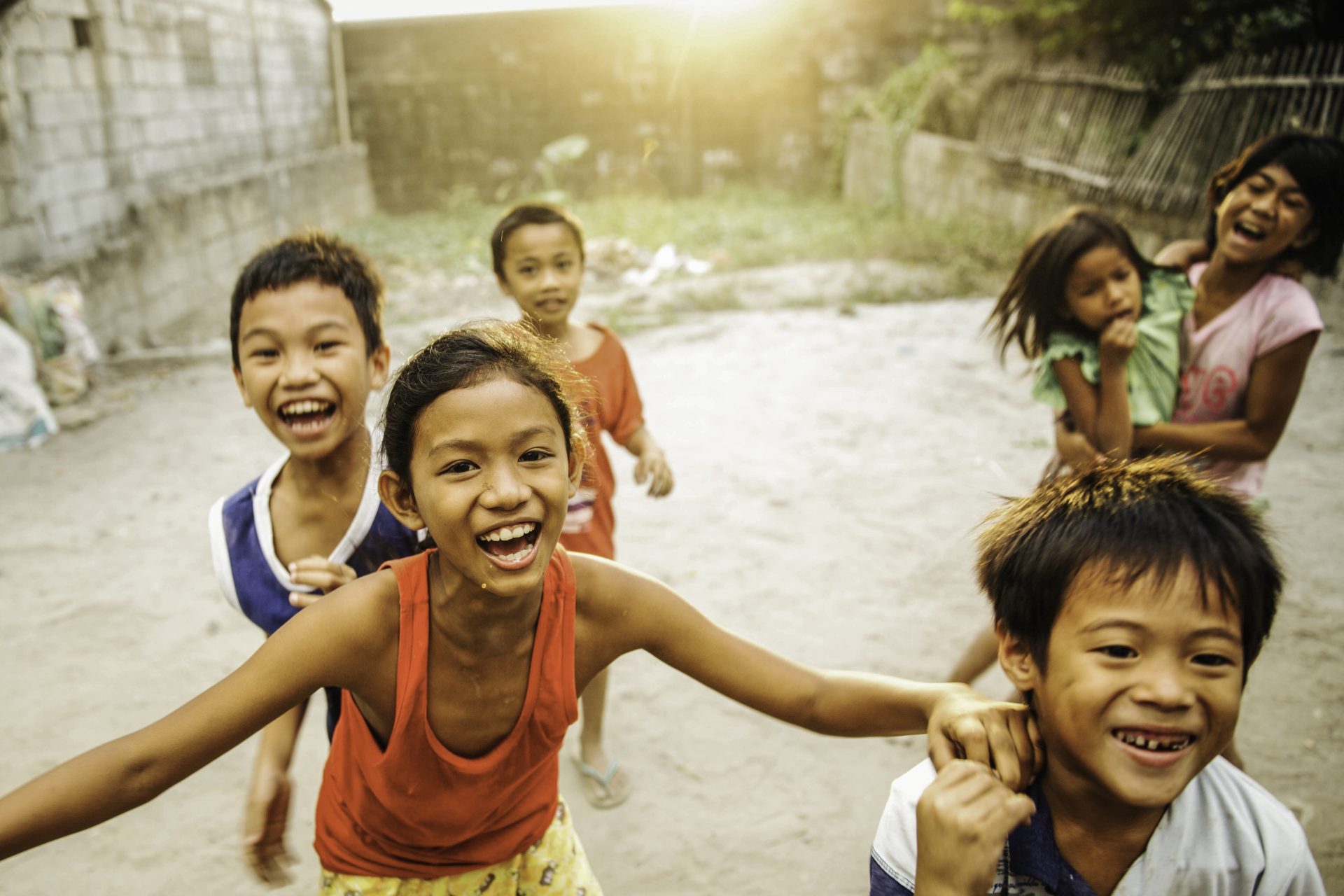“I used to think of myself as poor,” said Dylan Wilk, co-founder of Human Nature, a social enterprise that he runs with his wife and her sister in the Philippines.
As he shared about his life as a young entrepreneur at the Eagles Leadership Conference 2019 last Friday, you would never have thought of him as poor.
At 25 years old, Wilk was listed as the ninth richest young entrepreneur in the UK by The Guardian. In a previous interview with The Straits Times, he also mentioned how he used to go to work in a helicopter just to beat the traffic.

But Wilk did, in fact, come from a poor, broken home in England. His mother had various problems, including substance abuse, and his father had left him when he was 5 years old.
Overcoming the odds of his background, he was able to receive funding for his mail-order computer games business, which became a huge success. Yet despite his wealth, Wilk wasn’t happy.
He shared: “I was working seven days a week for five years; I did nothing but work. And I became incredibly selfish and greedy. I was just motivated by money.”
A life of pleasure then becomes a life of emptiness.
Amidst this darkness, it was his grandmother and her faith that helped keep the light inside Wilk shining.
“My grandmother used to take me to church every Sunday,” he recalled. “As a young kid, I used to serve in the church. I always loved God as a child.
“I don’t even know where her faith came from, but she was always praying…
“And I know that she was praying for me all the time. Even when I started to become successful, I knew she was worried about me, and what it was doing to me and who I was becoming. But her prayer was only answered the moment she died.”
When Wilk’s grandmother passed away in his arms, that moment snapped him back to reality.
“I started thinking about everything she taught me. Everything she’s done with her life. She never had any money, but she was always generous and always helping other people. And here I was, with all this money, doing nothing for anybody else,” he said.
“Whatever you buy, you become bored of it after a little while. A life of pleasure then becomes a life of emptiness.”
Upon realising this, he found himself once again on his knees to do something he hadn’t done in a while – pray. And he asked God a question that changed his life forever. He asked: “Lord, why am I rich?”
In search of an answer and a deeper purpose, Wilk travelled around the world. He aimlessly donated to various organisations, finding ways he could help others with his money. Yet nothing seemed right.
Eventually, he found his answer in an email from the founder of Gawad Kalinga (GK), a Philippines-based movement that builds communities with the aim of ending poverty. In English, gawad kalinga means to “give care”.
As an alternative to merely sending money over, he received an invite to participate in a community project. With nothing to lose, Wilk hopped on a plane to a country he would eventually call his home.
Witnessing GK in action, he was in awe. “GK was the most beautiful thing I’ve seen; it felt like the Bible had come to life.”
Wilk saw first-hand how a flooded village, where children had to walk to and from their own houses thigh-deep in sewage water, was transformed to become a row of colourful houses alongside clean and accessible stone pathways.
“These communities were built by volunteers who sacrificed their evenings and weekends to go into the slums to help transform the lives of the poor. It was their way of loving their country, but it was also about putting their faith into action,” he said.
It was here that Wilk decided to put his own faith into action. He committed to sowing his time and money to serve the poor in the Philippines, giving away almost all his earnings to build houses.
The one-week trip extended to one month, then two and the rest of his life.
“I’d only been in the Philippines for a few weeks and there was a group of teenagers that walked past me. They were clearly homeless,” he said, recalling one particular encounter that shifted his perceptions of serving the poor.
“They were filthy and sniffing glue (because it keeps them full). So I went out of the restaurant, and I went up to them and asked them if they were hungry. They said ‘yes’ so I asked them what they wanted to eat, and they said Jollibee.”
Wilk also recounts how one of the girls wrapped up half of her already small burger to give to her mother and brother. “I was so amazed that even though she was so hungry she still wanted to share it with her family.”
Another girl then began to cry. He said: “I asked her why she was crying and her response was: I’ve lived on these streets all my life and nobody’s ever bought me food. Why don’t you tell me what you want?
“She thought that I wanted to rape her because she was pretty… And just as I looked at her, I suddenly realised that wow, that could have been me. If I’d been born in a poor family in the Philippines instead of a poor family in England then I would still be there on the street.
“And so it changed for me – it changed from just wanting to do something to help assuage my guilt to a realisation that wow, I had everything and I thought I was poor.
“So that’s when I made a decision to give the rest of my life trying to find ways to help people like them.”
Taking on the role of developing GK’s international partnerships, who knew that this would also be how he would meet his wife?
Today, Wilk continues to alleviate poverty through Human Nature, which offers products that are affordable, ethically produced and eco-friendly.
Hiring workers who are the poorest of the poor, Wilk offers them a “living wage salary”, which works out to be twice the minimum wage in the Philippines.
He also seeks to honour God through the way he treats his employees.
When one of his staff was caught for stealing from his company, Wilk decided to forgive instead of firing him. His employee cried, as he had never been shown such kindness at work before. It turns out that he had also been taking money from his previous companies and been repeatedly fired.
Through the experience, this employee felt valued. He now works harder than others, and even attends Human Nature’s worship sessions and small group.
On his no-firing policy, Wilk said: “If God doesn’t give up on me, then I shouldn’t give up on the people God has sent to me.”
But beyond these HR practices, his heart for the poor pours out into simply being a good neighbour.
Sharing how he found a colony of squatters just behind his office, Wilk decided to offer them free breakfast every morning, cooked fresh from his office’s kitchen.
“A simple meal of eggs, bread and coffee didn’t cost much to the company, but it could feed close to 150-200 people, most of them being kids,” he said.
Wilk now finds satisfaction from his work, one that he never used to have.
“Happiness comes from your relationships and especially from knowing that you’re fulfilling God’s purpose in your life.”
- How are you stewarding the resources God has given you?
- Who are the poor around you that you can serve today?
- Is there a nation that God is calling you into?









